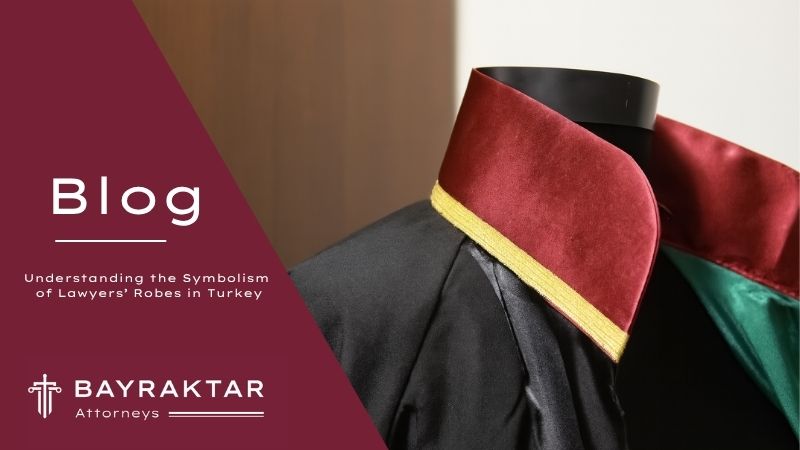
In Türkiye, the clothing worn by legal professionals in court is more than just a uniform. It is a tradition that goes back centuries and represents justice, authority, and neutrality. Lawyers, judges, and prosecutors are all required to wear robes during court sessions.
However, the robes worn by each legal profession differ in color and meaning. For Turkish lawyers, the “avukat cübbesi” (lawyer’s robe) carries profound historical and symbolic significance.
The Black Robe: A Symbol of Justice and Impartiality
The main color of a Turkish lawyer’s robe is black. This is not a random choice. Black is a color that is widely linked to seriousness, formality, and authority.
But in the legal context, especially in Türkiye, black represents impartiality and conscience. It is meant to convey the solemnity and integrity of the legal process. The black robe symbolizes that justice should be blind and that all matters must dissolve in the pursuit of fairness and truth.
This tradition of black robes is not unique to Türkiye; many legal systems around the world embrace the same color for similar reasons—to emphasize the independence of the judiciary.
Historical Roots of the Lawyer’s Robe
The tradition of wearing robes in court goes all the way back to ancient Rome. At that time, lawyers who traveled from city to city to help people with legal issues were required to wear black robes. This helped set them apart from the general public.
This tradition continued into the Middle Ages, where clergy who acted as legal representatives in court also wore long black garments.
In the early modern period, particularly between 1574 and 1715 in England and France, lawyers organized in guild-like structures and were referred to as “public knights.” These groups further ritualized the profession, introducing robes and wigs as symbols of their elevated status and institutional authority.
In 1726, Prussian King Friedrich Wilhelm I issued a royal decree requiring lawyers to wear long black wool coats that reached below the knee to ensure they could be identified even from a distance. These coats eventually became known as “robes,” a term still used today.
In Türkiye, the tradition of courtroom robes was formalized through the rules of the Union of Turkish Bar Associations (Türkiye Barolar Birliği), which made it compulsory for lawyers to wear robes during hearings. These rules define not only the obligation to wear robes but also their precise design and symbolism.
The Colors of the Collar: Green and Red
Although the robe itself is black, two colored accents carry specific legal meanings:
Green trim on the robe represents civil (hukuk) law cases.
Red trim signifies criminal (ceza) law cases.
These colors are consistent across robes worn by other legal professionals in Türkiye as well. For example, judges and prosecutors also wear robes with colored linings, depending on the jurisdiction in which they serve.
In criminal courts, the inner lining is red; in civil courts, it is green; and in administrative courts, the lining is gray.
Why Are Robes Buttonless and Pocketless?
One of the most striking features of Turkish lawyers’ robes is their design: they have no buttons and no pockets. These stylistic choices also carry symbolic meaning.
No buttons: This tradition symbolizes the independence of the judiciary. A lawyer, or any officer of the court, does not button up their robe in front of anyone. It represents the idea that the legal profession does not bow to any person and follows only the rule of law.
No pockets: This reflects the idea that justice is a public service, not a commercial enterprise. The lack of pockets reinforces that the robe is not meant for personal gain but is worn to serve the public interest and uphold justice.
Legal and Ethical Importance in Türkiye
In Türkiye, the robe is not merely a symbolic garment but a legally required uniform for participation in courtroom proceedings. According to the professional rules of the Union of Turkish Bar Associations, lawyers must wear their robes when representing clients in court.
This reinforces not only the formality of legal procedures but also the identity and responsibility of the lawyer within the justice system.
Wearing the robe serves as a reminder to lawyers of the trust that society places in them. It reflects their duty to protect justice, act ethically, and follow the rule of law, no matter their personal interests.
Conclusion
The Turkish lawyer’s robe is a garment rich in tradition and symbolism. From its black color representing neutrality and justice, to the absence of buttons and pockets symbolizing independence and service, each detail reflects the legal profession’s core values.
At Bayraktar Attorneys, we proudly wear this robe in court not only as a uniform, but as a daily commitment to fairness, ethical advocacy, and the dignity of the legal profession.
Recently Added Blogs



.png)
.png)
.png)
.png)
